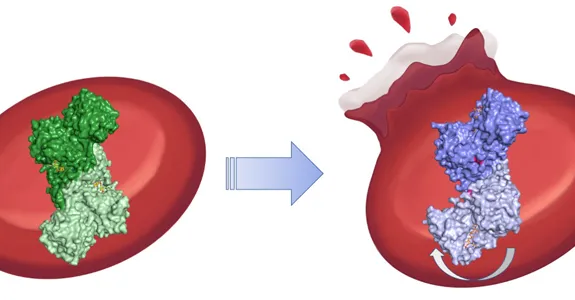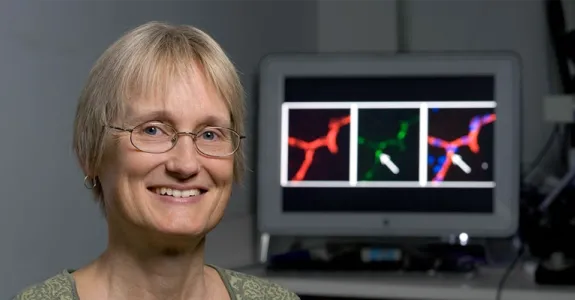
Dr. Daria Mochly-Rosen's laboratory is a multi-disciplinary research lab that includes chemists, biochemists, biologists and physician scientists. They develop pharmacological agents and apply them to understand molecular and cellular events under basal and disease conditions using in vitro, in culture and in vivo models.
There are several research areas:
- The basic research focuses on understanding how protein-protein interactions govern cell signaling (Science, 1995). They use rational approach to identify short peptide inhibitors of intracellular protein-protein interactions to interfere with signal transduction under basal and pathological conditions (Nature Biotechnology, 2008). This rational approach led to the discovery of the only highly selective protein kinase C (PKC) inhibitors and activators. These peptide regulators of PKC identified the role of this family of enzymes in a number of cellular responses. Importantly, these peptide regulators were found to be useful as therapeutics in a variety of animal models of human diseases, including myocardial infarction and heart failure (Nature Review Drug Discovery, 2013). A phase IIa study in humans demonstrated that one of the peptide inhibitors is efficacious in reducing cardiac damage in myocardial infarction patients. The study was carried out by KAI Pharmaceuticals that was founded by Dr. Leon Chen (a graduate student from the lab) and Dr. Mochly-Rosen in 2002. The company was acquired by Amgen in 2012.
- Peptide inhibitors of protein-protein interaction remain a focus of research in the lab. Recent effort focuses on rational design of inhibitors for a variety of signaling events including large GTPases that regulate mitochondrial dynamics (fusion and fission), proteins that mediate autophagy and mitophagy and enzymes that regulate cell metabolism.
- As part of their long standing interests in understanding the molecular basis of cardiac protection, they used an unbiased proteomic approach that unexpectedly identified aldehyde dehydrogenase 2 (ALDH2), the rate determining enzyme in ethanol metabolism, as a key regulator of cell survival under oxidative stress. These observations were possible because the lab designed a novel assay to screen for activators of ALDH2, called Aldas (for ALDH activators) Science, 2008). Importantly, Aldas correct a structural mutation in ALDH2 found in ~0.5 billion East Asians and therefore represents a new class of drugs that serve as molecular chaperons (Nature Structure and Molecular Biology, 2010). Aldas also prevent nitroglycerin-induced tolerance and improves outcome after myocardial infarction in animal models (Science Translational Medicine, 2011). Very few selective activators of enzymes have been described. Further, because defense from oxidative stress is a common factor in determining cell survival, current research in the lab examines the benefit of activating ALDHs in a variety of diseases and therapeutic modalities. This research led to founding ALDEA Pharmaceuticals in 2011 by Dr. Mochly-Rosen and Dr. Che-Hong Chen, a senior scientist in the lab.
- Current efforts focus also on identifying small molecules that correct genetic defects in other critical enzymes. Similar to the ALDH project, these efforts use high-throughput screening, in silico design and synthetic organic chemistry.








